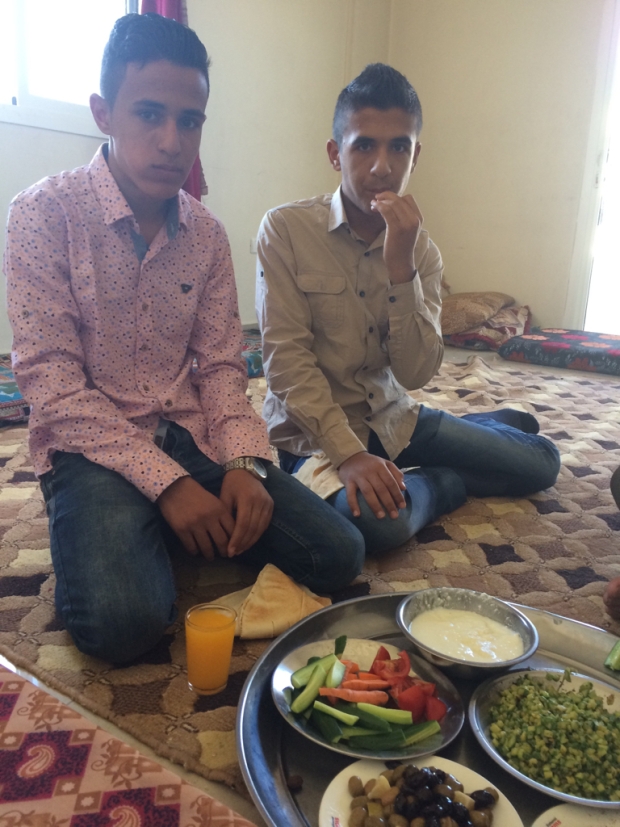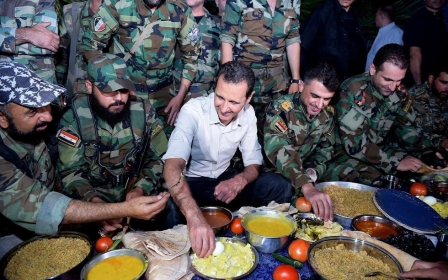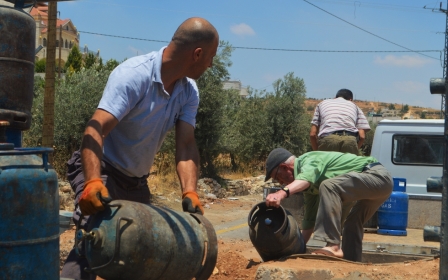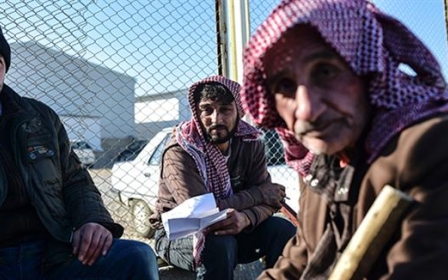'No Eid' for Syrian refugees marking holiday in Turkey and Lebanon
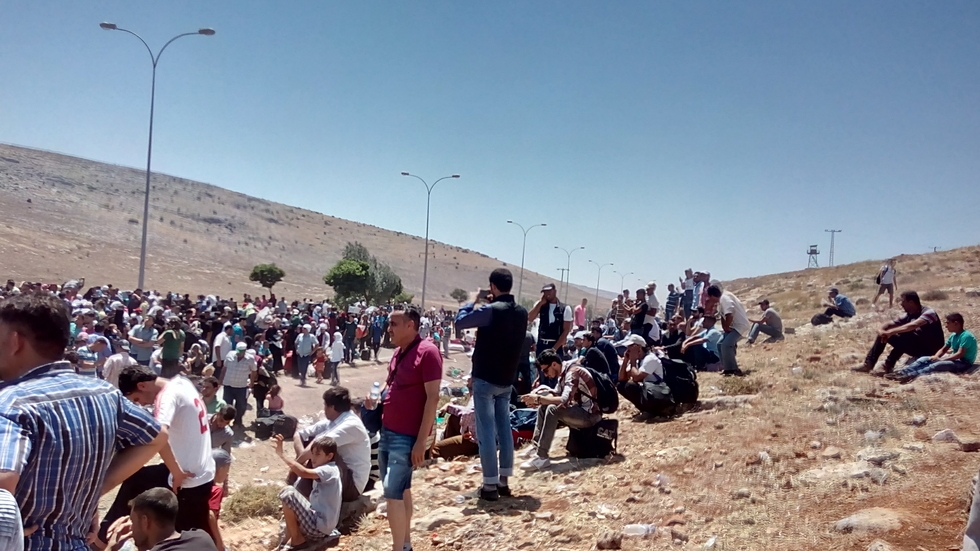
BAB AL-HAWA, Turkey - Abu Ibrahim fled to Turkey three years ago because of shelling in his hometown in Syria. But he was determined to return there for Eid al-Fitr celebrations.
"My father asked me to bring his grandchildren for Eid. It's my children's right to see their grandparents."
The construction worker from rural Idlib, now living in Kayseri in Turkey, was one of thousands of Syrians who temporarily returned home for the celebration, which marks the end of the holy Islamic month of Ramadan, as Turkey opened its border to allow refugees to celebrate with friends and family.
Syrians massed in queues under the July sun, waiting for hours to cross multiple checkpoints each manned by five members of the Turkish gendarmerie. Those who were not lucky enough to cross into Syria by the nightly cutoff time of 9pm were left to camp at the border without tents and with minimal food and water. There were multiple cases of Syrians fainting while waiting at the border crossing.
"The Turkish authorities opened the border last year too and I went back to Syria then," Abu Ibrahim told Middle East Eye at the Bab al-Hawa crossing. "I have been waiting for this holiday so that my children can see their grandparents."
Turkish authorities kept the Cilvegozu-Bab al-Hawa crossing in the southern province of Hatay open until 5pm on Tuesday for all those holding "kimlik," the cards issued to Syrians registered in Turkey.
Authorities estimated that up to 50,000 people would make the crossing back into Syria's northern Idlib province. One border guard told MEE he estimated around 25,000 had crossed since the border was opened.
Syrians who want to return to Turkey must do so before 8 July - or risk being stuck in the war-torn country at a border where Turkish guards have been known to treat refugees with hostility. Syrians hoping to cross into Turkey for the first time will not be permitted to do so.
The dangers of returning to Syria did not deter those who call it home.
Mohammed al-Abdullah had travelled for 31 hours to get to the border. "When I heard that the Turkish authorities had decided to open the border to let Syrians back through, I took the opportunity," said the former Free Syrian Army fighter from Kafr Zeta in rural Hama. He had not seen his family since leaving to live in Istanbul 18 months ago.
Kafr Zeta has been the victim of heavy aerial bombardment but Abdullah said that he was going back whatever happened.
"Seeing my family is more important than the worry," he told MEE.
'There is no Eid for Syrians in Lebanon'
In Lebanon, Syrians had little hope of celebrating Eid as they might have done before the war.
Syrians in the southern city of Sidon said that Eid would be a low-profile affair this year because they simply could not afford large celebrations.
Youssef, 28, a Sunni Muslim from the Alawi-dominated region of Latakia, told MEE on the eve of the celebration that there would be no Eid al-Fitr presents for his three sons.
"'Where are the presents?' my children will say. There aren't any," he told MEE beside the ancient city's Crusader sea castle.
"We won't have more than bread and olives and labneh. In Europe and America children will have lots of presents, but here in Lebanon life is very hard. We live in fear and are scared here."
Youssef said that now he worked from 8am until 6pm for $20 a day as a carpenter, and there was not enough money for gifts.
He said he had spent the past three Eids without his parents, since they had been killed in an air strike. "My friends and family are either here or dead. Everything is destroyed. For future Eids, I want to go back to Syria. I want there to be no more dead children, and to see my own children grow up in peace."
Celebrations amid fear of detention
Across Lebanon, Syrians celebrated Eid while fearing raids. Since two suicide bombings in the Christian village of al-Qaa near the Syrian border last Monday, security forces have arrested more than 400 Syrians for "unlawful roaming in the Lebanese territories".
Fingers have been pointed in multiple directions as to the perpetrators of the attacks, which left five people dead. But top government sources say that the attackers came from Syria and not from refugee camps inside Lebanon.
Lebanon's Interior Minister Nouhad Machnouk last week said four of the eight suicide bombers came from Syria to carry out the attack, although the mayor of al-Qaa said he doubted that the attackers had come from outside Lebanon.
Nevertheless, since then, raids have taken place across the country, from the Bekaa Valley neighbouring the Syrian border to the southern suburbs of Beirut, and have left many Syrians living in fear.
Syrians have been forbidden from leaving their homes at night in multiple towns in the Bekaa Valley, including Nabi Sheet near the Syrian border, and al-Ghazieh and Kfour in southern Lebanon.
One 31-year-old Syrian originally from Selemiye, and now living in Beirut, said he had not felt like celebrating Eid throughout the four years that he had lived in Lebanon, and that that it had become "like any normal day for us".
"I do not think that Syrians here are in a good mood to celebrate,” said the man, who wished his identity to remain concealed because he does not have identity papers in Lebanon and lives in constant fear of arrest.
“I haven't heard about any celebrations for Syrians here. Especially after the last actions against Syrians here [raids and arrests], I think the majority do not feel like celebrating."
Although there is not at present a curfew placed on Syrians in Beirut, the man said he avoided going out after nightfall for fear of arrest.
The Lebanese Army said "exceptional security measures" were in place for Eid al-Fitr, including wide deployment of soldiers on foot patrol, and mobile checkpoints.
Memories of lost loved ones
On the first day of Eid in a spotless but bare apartment in Deir Zenoun, 20km from the Syrian border, Abd al-Nasr, 17, showed MEE photographs of his younger self with his father Suleiman. Along with the teenager's mother, Fatima, his father was killed in an air strike on their home in Eastern Ghouta two years ago.
"I am sad to spend Eid without my parents," Abd al-Nasr said. "At Eid in the past, we had new clothes and presents."
He said he found it hard to describe his feelings, apart from wishing he could spend future Eids either in Germany, where he has cousins, or back with his friends in Syria.
His brother, Osama, had his legs blasted off in the same air strike attack but survived and recently received prosthetics.
They did not have the rich sweets and meat that they might have had for Eid back in Syria, and instead broke bread over a simple lunch of olives, courgettes and yoghurt in their flat, which they share with four other families.
Osama and Abd al-Nasr's aunt, Naimeh, explained how at Eids past they would shop in Damascus's Souk al-Hamadiye for sweets and presents for Eid, and people would gather to go to the famous ice-cream parlour, Bakdash, for a special-occasion treat.
"Before, we would celebrate with neighbours, friends and family. Muslims and Christians were brothers and sisters in Syria before the war. But in Lebanon, there is no Eid for us. They do not like us here."
She explained how the army had come to arrest people in the town in the past week and Abd al-Nasr said that Syrians imposed their own curfew, avoiding going out after dark and in the mornings before 5am.
"Things are very bad here. There is no Eid here in Lebanon. We want peace and to live in our home in Syria again," Naimeh said.
New MEE newsletter: Jerusalem Dispatch
Sign up to get the latest insights and analysis on Israel-Palestine, alongside Turkey Unpacked and other MEE newsletters
Middle East Eye delivers independent and unrivalled coverage and analysis of the Middle East, North Africa and beyond. To learn more about republishing this content and the associated fees, please fill out this form. More about MEE can be found here.


